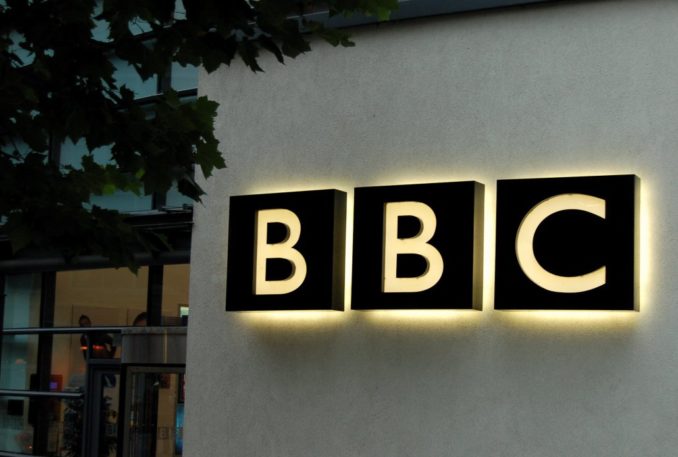
Recently Nadine Dorries announced the end of the BBC as we know it. At least that’s what the culture secretary appeared to imply when declaring that the next licence fee announcement will be the ‘last’ of its kind. A week, they say, can be a long time in politics. And sure enough, almost seven days after Ms Dorries’ proclamation sent frissons of excitement through Tory heartlands and ruffled the feathers of metropolitan elite, there is neither sight nor sound of actual policy drafts. It’s almost as if it never happened.
Indeed, no sooner had Ms Dorries raised the issue than she was back in parliament talking about the need to find ‘alternative’ ways to fund the BBC. For BBC critics – of which there are many – the alternative couldn’t be simpler: the broadcaster must become entirely self-funding i.e. a subscription service. Any form of government subsistence would be tax-payer funding by the back door, which may be the reason why BBC hierarchy seemed completely under-whelmed by the announcement. It won’t necessarily matter to the corporation how it’s funded, just that it can be assured the government will plug any shortfall arising from an ‘alternative’ funding model.
Reading between the lines it therefore appears that the all-important issue as to whether the broadcaster should receive public funding is not in question – just the mechanism by which the bounty will be distributed. The BBC is eager for some type of household levy. Should such an unpopular measure come to pass, it’s likely that whichever government implements it will have its own version of the poll tax revolt to deal with. Recall how that worked out for Mrs Thatcher . . .
But even then this speculation rests on a shaky assumption: that the current administration will still be in power by December 2027 when the broadcaster’s current charter expires and by which time Ms Dorries will have long since departed the Department for Culture, Media and Sport. Dorries might have frozen the licence fee for two years, but it’s back to business thereafter; it will rise in line with inflation. And anyway, 2028 is a long way off. A lot can happen betwixt then and now. If this all starts to look and feel like an exercise in diversion, it’s easy to see why.
The supposed rupture between government and anti-Tory broadcaster may in reality be nothing more than a spat whose origins go back to the EU Referendum and Boris Johnson’s emergence as an unlikely Brexit champion. That Johnson had the temerity to betray the metropolitan elite rankled the fervently pro-EU BBC. Rather than supporting his own class, Johnson had sided with the oiks, a class of people whom the broadcaster dismissively termed ‘Little Englanders’. The politically neutral broadcaster has been gunning for Mr Johnson ever since.
Intensifying rather than diminishing, Auntie’s anti-Boris campaign has continued into his tenure as Prime Minister. And so, under sustained attack from a vengeful broadcaster over his role in ‘party-gate’, it seems that the PM wished to send a shot across BBC bows, to remind its apparatchiks who actually runs the show. A steadfast ally of Mr Johnson, Ms Dorries it seems duly obliged. Could it be that the dramatic and long-awaited announcement was nothing more than a touch of sabre-rattling on behalf of a beleaguered Prime Minister, a piece of theatre: Lay off the Prime Minster or else?
It makes you wonder. For this is by no means the first time the Conservatives have threatened to clip BBC wings. Back in the 1980s Norman Tebbit ran a department specifically charged with collating examples of anti-Tory BBC bias. Despite accumulating a plethora of evidence – which included Maggie’s Militant Tendency, whereby Panorama insinuated links between the ‘far right’ and various Thatcherites – nothing came of it. As recently as the Conservative 2019 General Election victory a senior Tory figure vowed that the Johnson government would ‘whack’ the broadcaster – another promise that failed to materialise.
As evidenced by the key role it played in producing anti-Brexit and then pro-Covid vaccination propaganda, gas-lighting and brow-beating the country on a daily basis, the ‘British’ Broadcasting Corporation is an asset the British state-cum-establishment can ill afford to lose. Without it, the British Deep State would lose a vital component. In power since 2010, a true Conservative party would have dealt with the broadcaster as a matter of priority. Instead, the can has been kicked deeper into the long grass for at least another six years.
Thus, if the average middle England voter is expecting an end to the corporation’s incessant woke ideology and politicking any time soon, they’d best be advised not to hold their breath. For as long as the BBC continues to consolidate and promote the objectives of the establishment it will be prosper – despite its audience shrinking year on year until a point where the BBC evening news struggles to attract three million viewers. No matter, BBC content is aimed primarily at the power-brokers i.e. that area of the capital that lies between Westminster to Whitehall.
Thus, when Nadine Dorries announced the end of the BBC licence it was nothing more than a way to kill off several birds with a single stone: send a warning to the broadcaster to go easy on Johnson; appease middle England with promises of a privatised (and therefore mortally wounded BBC) while also heading off true conservative parties such as Reclaim who have promised to do what the Tories fear to: put an end to the BBC monopoly once and for all thereby enacting a policy that has significant support with the UK electorate.
Smoke and mirrors. Miss Dorries and The Conservatives were merely flexing a muscle they have absolutely no intention of using. Ever.
© David Sedgwick 2022



